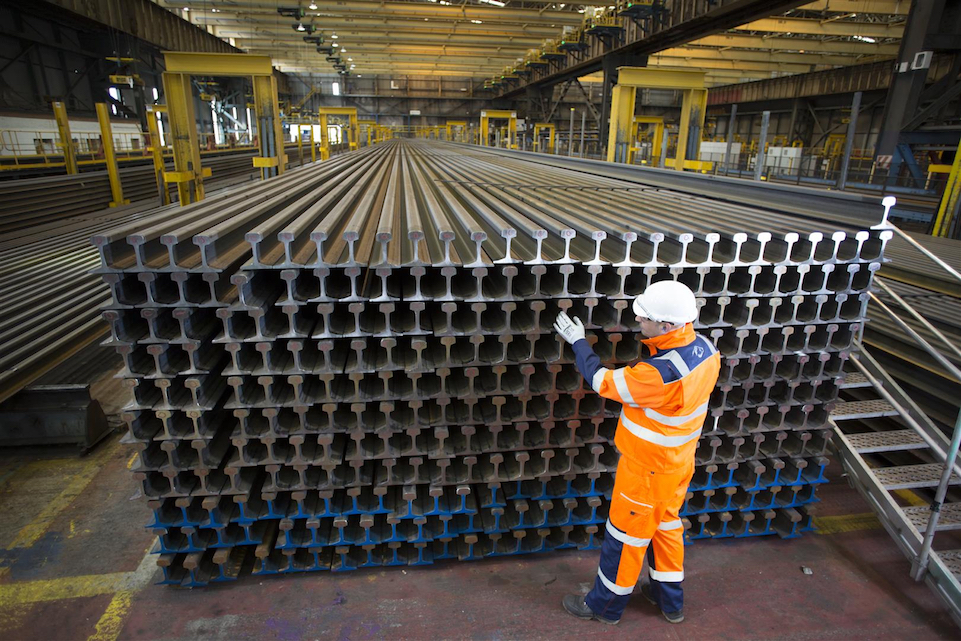Doubts hang over the future of Scunthorpe Steel Works, the UK’s only rail manufacturing centre. The blast furnaces there are loss-making, say the owners, and there is a likelihood that the plant will close very shortly. That will leave the UK without a virgin steel plant and reliant on imports.
Scunthorpe, which is the hands of Chinese owners, although trading at British Steel, is likely to close in the next few weeks, unless a rescue package can be finalised. Jingye (which trades as British Steel) says losses of £700,000 per day are unsustainable. There are also local implications for rail freight.
Rail freight at Scunthorpe
Raw materials for steel production are imported via Immingham Bulk Terminal (IBT), British Steel’s port facility on the Humber River, 20 miles (32km) from the plant. The terminal can handle up to nine million tonnes of raw materials a year. Despite the port being rail-served, bulk supplies are transferred by road. If the plant does close, long-term plans for a switch to rail seem unlikely to be realised.

However, finished products from the plant are sent out in part by rail. Most important among them are supplies of rail for the UK network. While the plant’s future is in doubt, there is a question mark over how new rail will be sourced. Potential supplies could come from steel plants in Belgium or elsewhere in Europe.
Steel on the scrapheap
The UK has become more reliant on imported steel since the industry began a long decline in the 1980s. Only last year, the blast furnaces at Port Talbot in South Wales closed. The Indian owners of that plant intend to refit that site with electric arc furnaces, which recycle steel from scrap. However there are no such firm plans for Scunthorpe. Nor is it clear if steel of sufficient quality could be manufactured from scrap for the purpose of railway tracks.

Network Rail, the UK infrastructure agency, holds supplies of new rail in the north of England and also at Eastleigh, near Southampton. If future supplies were to come from overseas, there would be some new work for rail freight operations. However, the UK government seems distracted by geopolitical matters, and there is a danger that the demise of steel manufacturing will be overlooked and that production will be derailed, permanently.